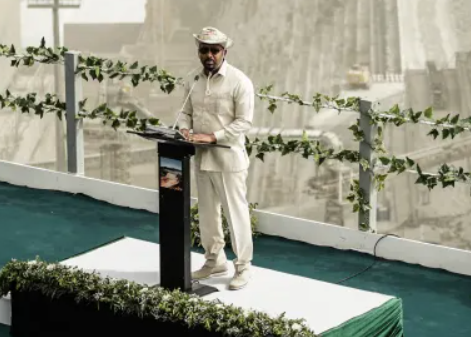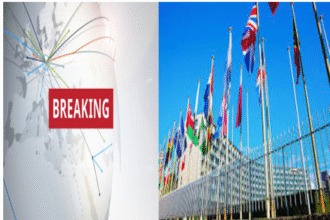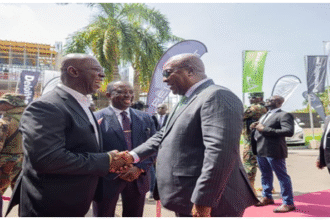By Simba Munyua
Addis Ababa, Ethiopia – Ethiopian Prime Minister Abiy Ahmed announced on Thursday that the Grand Ethiopian Renaissance Dam (GERD), a multi-billion-dollar hydroelectric project on the Blue Nile, is now complete. The announcement comes despite ongoing concerns from downstream neighbors Egypt and Sudan about the dam’s potential impact on their vital water supplies.
Addressing the Ethiopian parliament, Prime Minister Abiy assured Egypt and Sudan that the GERD is “not a threat, but a shared opportunity.” He emphasized that the energy and development generated by the dam would benefit the entire region, not just Ethiopia. The official inauguration of the dam is scheduled for September.
The GERD, launched in 2011, is Africa’s largest hydroelectric project. Stretching 1.8 kilometers wide and 145 meters high, the dam has the capacity to hold up to 74 billion cubic meters of water and generate over 5,000 megawatts of power, more than doubling Ethiopia’s current electricity output.
Ethiopia argues that the dam is crucial for its electrification program and economic development. With a rapidly growing population of approximately 130 million, the second largest on the continent, the country faces a pressing need for increased electricity generation. World Bank estimates indicate that about half of Ethiopia’s population currently live without access to electricity.
However, Egypt and Sudan have repeatedly expressed their apprehension about the GERD’s operation and filling schedule, fearing it could significantly reduce their access to the Nile’s waters. Negotiations between the three nations have so far failed to yield a breakthrough agreement.
Egypt, heavily reliant on the Nile for 97% of its water needs, views the dam as an existential threat, particularly given its existing water scarcity challenges. Earlier this week, Egyptian President Abdel Fattah el-Sisi and Sudan’s leader Abdel Fattah al-Burhan met and reiterated their “rejection of any unilateral measures in the Blue Nile Basin,” reaffirming their commitment to “safeguard water security” in the region.
Despite these concerns, Prime Minister Abiy insists that Ethiopia is “willing to engage constructively” and that the project will “not come at the expense” of either Egypt or Sudan. “We believe in shared progress, shared energy, and shared water,” he stated, adding, “Prosperity for one should mean prosperity for all.”
The completion of the GERD marks a significant milestone for Ethiopia but also underscores the urgent need for a comprehensive agreement that addresses the concerns of all three nations and ensures the equitable and sustainable use of the Nile’s vital resources. The success of the project, and its contribution to regional stability, will depend on the ability of Ethiopia, Egypt, and Sudan to find common ground and cooperate on the management of the Nile River.









